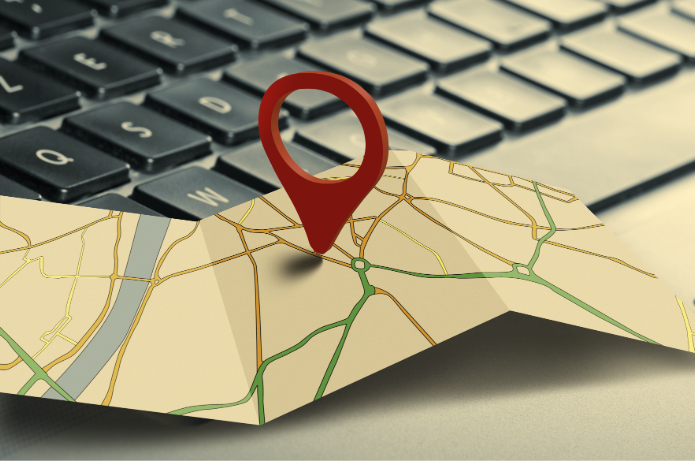Viajar a trabalho é uma prática valorizada por 91% dos profissionais brasileiros, segundo o “Perfil do Viajante Corporativo”, uma recente pesquisa da Onfly, maior travel tech B2B da América Latina, realizada em parceria com a Opinion Box. O estudo, que nasceu com o objetivo de ajudar as empresas a organizarem melhor sua gestão de viagens, melhorar a experiência dos colaboradores e otimizar as políticas de viagem de maneira mais estratégica e embasada, ouviu 1.021 profissionais em todo o país.
Os dados mostram que 64% dos viajantes corporativos já estão há mais de cinco anos em suas empresas atuais e que 55% estão em cargos de liderança. O estudo revela ainda que os principais motivos das viagens corporativas acontecerem são devido a treinamentos e capacitações (47%), eventos e feiras (45%) e visitas de campo (32%).
No que diz respeito à frequência das viagens, 15% dos profissionais responderam que realizam viagens uma vez ao ano, 22% uma vez por semestre e 28% viajam uma vez a cada três meses.
Setores que mais proporcionam viagens a trabalho
A pesquisa também aponta os segmentos que mais realizam viagens corporativas: organizações de serviços lideram essa lista, representando 16%, seguidas por outros, com 15%. Saúde aparece em terceiro lugar, com 11% e tecnologia em quarto, com 10%.
Contudo, 53% dos profissionais que viajam a trabalho disseram que as empresas onde atuam não têm uma área específica responsável pela organização das viagens. “Este resultado mostra como as empresas no Brasil ainda podem investir em inovação quando o assunto é a experiência dos seus colaboradores com viagens corporativas, visando simplificar a vida de quem viaja a trabalho, garantir uma maior transparência para os gestores e economizar no final do mês”, comenta Marcelo Linhares, CEO e co-fundador da Onfly.
Gastos com viagens
Os principais gastos associados a essas viagens são voltados à alimentação (87%), hospedagem (79%) e transporte local (60%).
Políticas de viagem
A pesquisa da Onfly aponta que 89% dos viajantes corporativos têm clareza sobre as políticas de viagem de suas empresas, com acesso às diretrizes principalmente por meio de documentos online (49%), reuniões com os setores responsáveis (27%) ou via plataformas (27%). Marcelo Linhares avalia que, com a transparência das políticas de viagem, os profissionais que viajam têm todas as ferramentas necessárias para cuidarem de suas viagens de forma autônoma. “Como os dados mostram, se a maioria das pessoas tem essa clareza sobre as viagens, a reserva desse tipo de compromisso não precisaria ser feita por terceiros. Elas poderiam gerenciar isso com liberdade, de acordo com suas próprias preferências”, avalia.
O estudo também apresenta dados com relação aos meios de pagamento utilizados nas viagens corporativas: 37% dos profissionais disseram que realizam pagamentos via cartão corporativo, enquanto 35% ainda pagam despesas em viagens por conta própria e depois recebem o reembolso. Quando se fala em prestação de contas, 39% dos respondentes mostraram que esse processo é realizado de forma automatizada, enquanto 32% ainda precisam fazer isso via documentos em papel.
“A tecnologia é uma ferramenta essencial para todos os setores atualmente, mas, infelizmente, ainda vemos empresas que realizam processos de reembolso de gastos em viagens corporativas de modo arcaico, onde os funcionários precisam guardar os recibos e apresentar no retorno da viagem para ter o seu reembolso e, muitas vezes, este retorno financeiro demoram dias, semanas e até meses para cair na conta”, diz Linhares, que complementa que esse hábito das companhias prejudica tanto o colaborador, que precisa arcar com os custos e pode enfrentar dificuldades financeiras pessoais, quanto a gestão da empresa, que perde visibilidade e enfrenta um risco maior de fraudes e problemas na conciliação das contas.
Rotina fora de casa
Estar fora de casa durante as viagens corporativas impacta diretamente o cotidiano dos profissionais: 60% dos viajantes que participaram da pesquisa relataram que a prática de exercícios físicos é a rotina mais afetada, enquanto 57% disseram ser a alteração no tempo pessoal e outros 57% assumem ter dificuldades em manter uma alimentação equilibrada. Esses desafios são ainda mais sentidos pelas mulheres, que registram índices superiores aos dos homens nesses aspectos, com destaque para a prática de exercícios: 64% contra 57%.
As preferências dos viajantes
Quando o assunto são os canais de atendimento preferidos pelos viajantes para solucionar questões relativas às viagens a negócios, o WhatsApp é o mais utilizado (65%), seguido pelo e-mail (60%). Isso reforça a necessidade de canais rápidos e acessíveis para atender às demandas durante as viagens.
Já sobre preferências de check-in, 44% dos viajantes optam pelo check-in online, enquanto 20% preferem o check-in no balcão e 16% o autoatendimento.
O CEO da Onfly acredita que os resultados da pesquisa endossam as oportunidades que as companhias têm para melhorar o bem-estar dos colaboradores, auxiliando os gestores de viagem a organizarem esse tipo de demanda de forma mais estratégica. “O viajante corporativo busca cada vez mais flexibilidade e praticidade em sua jornada. Proporcionar soluções que atendam a essas demandas é fundamental para empresas que desejam valorizar seus profissionais, otimizar os resultados das viagens e seguir suas políticas e compliance à risca” afirma.


